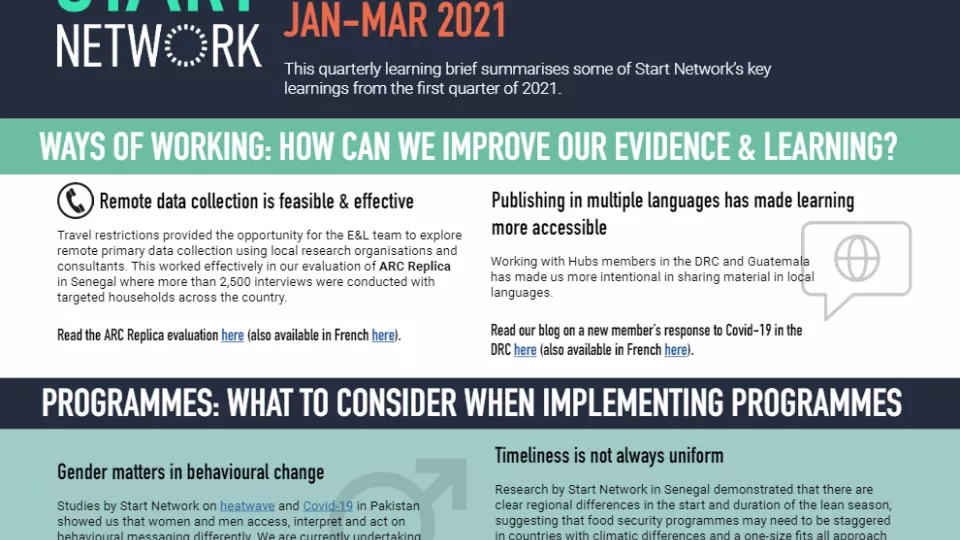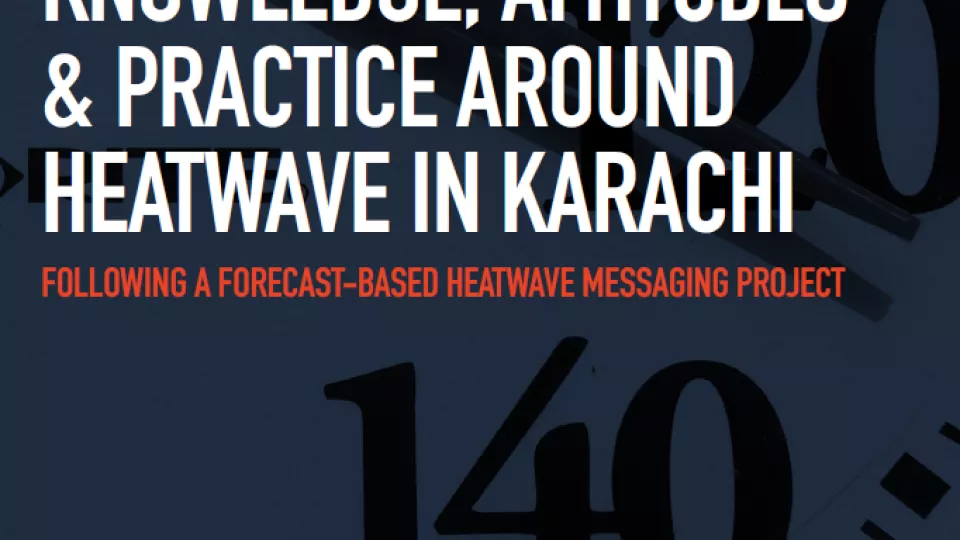What Is Start Ready and How Does It Fit Into The Financing Facility
This session introduced Start Ready, a new financial service for the humanitarian sector that will use climate science, risk protection mechanisms, and financial best practice to protect more people against predictable disasters worldwide. Start Ready will sit alongside the Start Fund in Start Network's financing facility.


